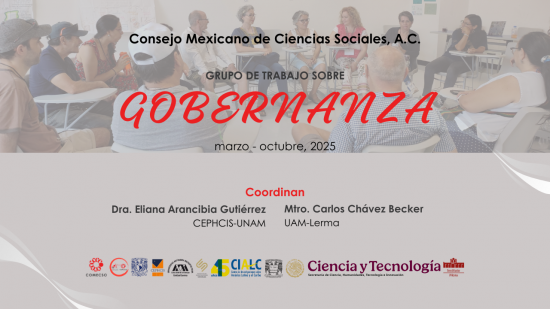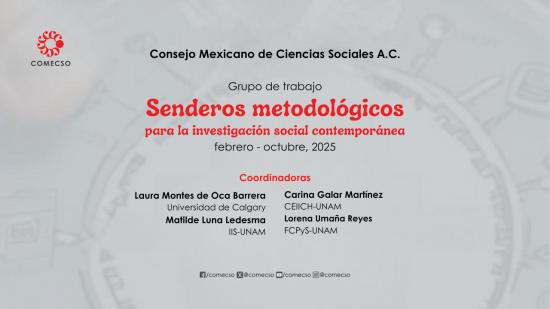Economic worlds, activist worlds
Call for Papers
Special issue of the Revue française de sociologie
Economic worlds, activist worlds
Contentiousness, boundaries, and cooperation
Scientific coordination:
Laure Bereni (Centre Maurice Halbwachs – CNRS, EHESS, ENS)
Sophie Dubuisson-Quellier (Centre de sociologie des organisations – CNRS, Sciences Po)
Having long focused on the actions of social movements against the state, sociology has recently begun to focus on the study of activism targeting economic actors (Soule, 2009; Luders, 2006). These studies, which initially emerged in the context of anti-globalization movements, have focused on these movements’ ability to take a wide variety of forms (King and Pearce, 2010), thus enriching the repertoire of collective action. Some of these actions are highly critical and seek above all to disrupt companies’ routines – for example calls for boycotting or naming and shaming (King, 2008; King and Soule, 2007). Others are more focused on reform and organized around private certifications or labels (Bartley, 2007; Baron, 2013). Research shows that there is a high degree of permeability between these two social spaces and activist organizations can also contribute to the creation of new markets (McInerney, 2014; Sine and Lee, 2009; Lounsbury et al., 2003), or even new kinds of economic organizations (Schneiberg et al., 2007). The question of the boundaries between activist worlds and economic worlds also runs through economic sociology. Many studies have particularly focused on the relationship between morals and markets, demonstrating that not only are markets sensitive to moral criticism (Fourcade and Healy, 2007), but also that these interactions are constantly redefining both market values and those of society (Zelizer, 2000). Contested markets (Steiner and Trespeuch, 2015) are specifically organized around frameworks that allow them to be acceptable within societies.
However, there are few studies that genuinely combine perspectives from economic sociology with those of the sociology of social movements. The latter tends not to focus on the specificities of organizations that target the economic world and the way in which that world reacts and adapts to them. Inversely, economic sociology has not dwelt much on the role of social movements in market functioning, with the exception of certain sectors on the fringes of the economy. Finally, these two fields as yet provide few frameworks or theoretical tools to conceptualize hybrid actors and forms of action, such as the defense of a cause whilst following the contours of the moral rhetoric of capitalism. Indeed, such hybridization cannot be acknowledged with a binary opposition between protest and legitimation of the economic order (like the mobilizations and devices that emerged around the categories of corporate responsibility, responsible finance, or diversity).
In the special issue, however, we consider on the one hand that social movements are stakeholders in the functioning of the markets, and on the other that all the markets are sensitive to criticism, whether direct or indirect, from the most mundane (food markets and automobile markets for example) to the most central (financial markets) – or most recent (digital markets). Some activist groups even make criticisms of the functioning of the economy their main claim, protesting planned obsolescence, or discrimination in hiring. Other organizations are motivated by other causes, such as social justice, human rights, or the environment, and can deploy actions specifically targeting businesses as part of their repertoire of collective action.
This issue seeks to publish contributions that shed light on the forms and effects of the interactions, and even the hybridizations, between the activist world and the economic world. Papers may consider empirical investigations of activist groups, firms, or markets. They should prioritize research objects that are central to the economy rather than those on the margins, which have been more widely studied. Several non-exclusive perspectives may be envisaged.
Papers may address the way in which activist groups construct their influence capability either with or against the economic sphere. Social movements mobilize various critiques of the market and use a vast repertoire of collective action to try and influence the decisions of economic actors. Some of these actions are clearly disruptive and seek audiences within the public space, primarily targeting the most symbolic economic actors in that particular struggle (Bartley and Child, 2014; Vogel, 2005). On the other hand, other organizations use more cooperative forms of action, working with or even for companies, such as in issues of diversity, responsible finance, or animal welfare. Beyond the labelling strategies that have been widely studied, we have little understanding of the modalities of these collaborations. What interactions do social movement organizations have with business and professional organizations, recruitment agencies and consultancy firms specialized in corporate responsibility (responsible finance, diversity, corporate ethics, etc.)? What interactions do they have with public authorities at different levels (national as well as international) who produce the norms, discourses, and frameworks (Bergeron et al., 2014) that encourage economic actors to contribute to the common good? Papers could explore these repertoires of action, from the most radical to the most cooperative, as well as their interconnections, and the forms of cooperation or competition that they produce within social movements.
We also welcome proposals that explore these interactions from the perspective of the economic world, in examining companies, their partners, or the markets. How does the economic world organize its confrontation against, adaptation to, or collaboration with social criticism? Many studies have demonstrated that companies’ compliance with social demands, often compatible with legal rules and public policy prescriptions that are relatively non-binding, tends to occur on symbolic rather than genuinely effective aspects (Edelman, 2016; Locke, 2013). In certain areas, firms have even used management techniques to include these expectations into management rationality (Bereni, 2018). Other studies have shown that companies have progressively gained more skills and human resources to face the social challenges they are subject to, and to adapt (McDonnell et al., 2015). These different perspectives emphasize that, far from ignoring the role of social movements in economic functioning, businesses do pay attention to them and modify their practices accordingly. Moreover, consultancy or law firms, particularly those specialized in constructing market or organizational responses to legal and political pressure, also contribute to these interactions. They may do so by offering corporate training or by organizing meetings between corporate representatives and “stakeholders” in order to help companies better understand social expectations and even avoid confrontation.
Finally, this issue also welcomes articles that investigate the effects of these interactions and zones of hybridization between social movements and the economic world. The literature already provides certain potential avenues in this respect. Research by Zelizer has emphasized the fact that businesses seek to make their activities compatible with the values of society, as well as seeking to transform these values (Zelizer, 1979). From this perspective, activist movements are also the vectors of new social norms that firms are able to reconvert into economic values (Dubuisson-Quellier, 2013, 2018). It is this important to explore the effects of criticism on the evolutions of the economic world (Boltanski and Chiapello, 1999) but in looking specifically at the mechanisms that enable, confront, and interconnect the expression of social movement claims with economic activities. Political authorities, for whom it is often easier to change regulation when militant action has paved the way for it, most probably have a significant role to play in this which will also need to be determined.
Proposals (min. 1 000 words – max. 1 500 words, bibliography not included) should be submitted, in French or English, to the editorial secretary, Christelle Germain (christelle.germain@cnrs.fr), by May 31 2019.
They will be jointly examined by the authors of this call for papers as well as another member of the editorial staff. Notification of acceptance will be sent by July 10 at the latest.
Authors of proposals that are accepted must submit their texts (no longer than 70,000 characters, including spaces, bibliography and figures), no later than November 1 2019. Each article will be independently evaluated by the scientific coordinators of the issue, and anonymously assessed by the editorial committee of the Revue française de sociologie.
Te puede interesar

Publicaciones del COMECSO
Roberto Holguín Carrillo - Ene 08, 2025Este espacio reúne la gran mayoría de la producción editorial de nuestra asociación. A lo largo de casi cinco décadas,…

COMECSO felicita al Dr. Gustavo Adolfo Urbina Cortés
comecso - Mar 14, 2025
¿Qué es belleza y por qué importa? Interpelaciones en y desde el género y el cuerpo
Laura Gutiérrez - Mar 14, 2025Universidad Nacional Autónoma de México, Centro de Investigaciones Multidisciplinarias sobre Chiapas y la Frontera Sur, Educación Continua Curso ¿Qué es…

Inteligencia artificial y su impacto en las políticas públicas y la economía Global
Laura Gutiérrez - Mar 14, 2025Inteligencia artificial y su impacto en las políticas públicas y la economía Global Número 137 | Año 38 | Enero-Junio…











